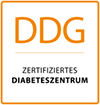About the disease
Type 1 diabetes is an autoimmune disease where beta cells in the pancreas are destroyed to such a degree that a sufficient amount of insulin can no longer be produced. Insulin is the hormone that promotes the absorption of sugar (glucose) from the patient's blood into fat, liver and skeletal muscle cells. Diabetes is diagnosed when hyperglycemia, or high blood sugar, develops. It is most common in young patients, but in some cases it can develop after 30 years of age. According to the American website WebMD, this type of diabetes is the rarest, accounting for only 5% of all cases of diabetes.
It is most often caused by autoimmune diseases and viral infections. People with a genetic predisposition are more likely to develop type 1 diabetes if they have had, Graves’ disease, Addison’s disease or thyroiditis. This type of diabetes is more prevalent in European people. A child has 2-3% risk of developing diabetes if the mother suffers from it and 5-6% - if the father does. If both parents have diabetes, the risk is almost 30%.
60% of people do not develop serious complications from type 1 diabetes. Nevertheless, patients will have to constantly take prescribed doses of insulin to control their blood sugar. Complications from type 1 diabetes most often include vision, heart and renal problems, but most of these can be avoided by leading a healthy lifestyle and having regular check-ups at the endocrinologist clinic.
Symptoms
- Nausea
- Polyuria, which is an overproduction of the urine
- Fatigue
- Blurred vision
- Weight loss
- Dry mouth
- Constant thirst
- Frequent infections
- Heavy breathing
Diagnosis
- A blood test is the most effective diagnostic measure, as it can determine the patient’s blood sugar level, which is the main indicator of diabetes.
- Urinalysis can assess the amount of glucose and chemicals in the urine, which changes if insulin levels are abnormal.
- An oral glucose tolerance test checks the patient’s ability to process glucose and also differentiates between type 1 and type 2 diabetes.
Treatment
- The main treatment method for type 1 diabetes is insulin therapy, which is usually received in the form of regular injections. There are several well-known types of insulin and each one is prescribed individually. Each type of insulin has a different rate of absorption into the blood.
- Conservative treatment also includes a specially adapted diet, which should be followed strictly by diabetic patients if complications are to be avoided. Meals are usually divided into a fixed number and they should be consumed at approximately the exact same time each day. Consumption of sugar should be minimized.
As well as receiving treatment, you should also maintain a healthy lifestyle by taking part in sports and avoiding smoking and alcohol consumption. Following such simple guidelines will ensure you have a long life expectancy.
Authors: Dr. Vadim Zhiliuk, Dr. Sergey Pashchenko
















